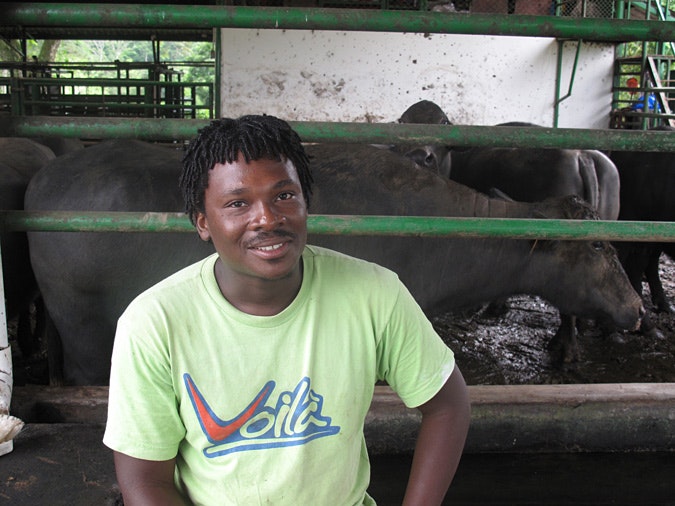Hope in a Soda Bottle
By Chuck Sudetic

In 2009, the Open Society Scholarship Programs awarded EARTH University a grant to support promising undergraduate scholars from Haiti and Mozambique. The following post is part of our blog series featuring their voices.
Amos Montreuil Jean: During my last year of high school, I asked myself what I was going to do. I was interested in medicine, and envisioned myself as a doctor. But I knew I would be just as suited to architecture or agriculture. For young people in Haiti, it is very difficult to have a specific goal and to work toward it, because the opportunities are so few. Even gifted young people can only choose from a narrow range of opportunities that exist. I was worried before I received a scholarship to EARTH University.
Agriculture is important for the future of my country. Now, because of EARTH, I can plan my future. I want to keep going with my education and to return to Haiti with a master’s degree in genetics or agricultural business management. EARTH’s program is directed toward the community. We are not just agronomists. We are social agronomists. This is not someone who stays in an office and manages projects. A social agronomist keeps in touch with the community and helps the community develop. Haiti needs this, because, in Haiti, the organization of the community has broken down. Social agronomists can help bring communities together and help farmers resolve their problems.
My project this year is to organize seminars for members of the peasant community living in the vicinity of EARTH’s campus to learn about medicinal plants that can be used to treat common ailments. People, for example, do not know the medicinal properties of a coconut palm. It can be used as a laxative and promotes good digestion, staves off memory loss, and fights fevers. And cactus can be used for headache, hair loss, and gastritis. I also want to show people in the community how they can use disposable items, commonplace litter such as plastic soda bottles and trash bags, to grow food.
In Port-au-Prince, people build shelter and workrooms on all the available land, so there are no fields to raise crops. EARTH teaches us how food can be grown in urban areas. We have a system that uses soda bottles to build up tiny victory gardens. We have a hydroponic system that can grow vegetables in plastic bags. It is so simple… plants growing in a plastic bag. Where I come from in Port-au-Prince, we have a lot of people who are hungry. They have no idea of these simple systems to produce food on their own with things that are all around them.
As told to Chuck Sudetic.
Until November 2013, Chuck Sudetic was a senior writer for the Open Society Foundations.